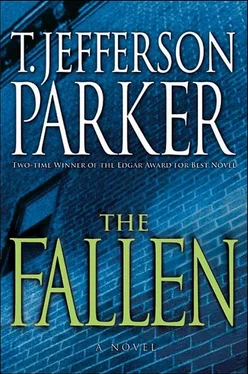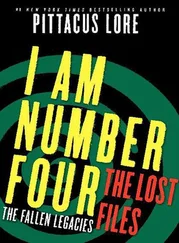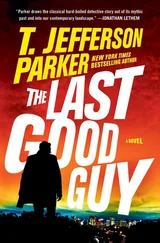I thought of calling my mother and father but didn’t want to make them anxious about a misunderstanding. They lived down in El Cajon, just east of San Diego. My father is a sales representative for Pacifi-Glide, a subsidiary of Great West Consolidated. They manufacture sliding tub and shower doors. My mother has worked as a secretary in the San Diego School District for twenty-four years, ever since I started kindergarten. They’re not old people, but I saw no reason to upset and alarm them. My father had a heart attack last year, though it was considered minor and stress-related. Besides, things between Gina and me were going to work out. Why get other people worried?
After dinner I sat at my table in the cold garage and tried to tie some flies. But I kept wondering why Gina was so unhappy, and I couldn’t concentrate on the tiny hooks and feathers. How long had this been happening? Five years ago, when we first got married, she was happy. She was only nineteen then, but she was almost through the College of Beauty and had a job waiting for her when she got out. I was twenty-four and had just started working fraud. We got married in June at the Pala Mission out on Highway 76, because Gina is Catholic and St. Agnes Church in San Diego was booked up that day. We rented a place here in Normal Heights and all we did for two straight years was work hard, party, and make love. Between her friends and mine we always had something fun to do. Sometimes I might have spoiled things for Gina’s crowd because they wanted to do drugs. I didn’t mind but I didn’t want to watch them do it or see them drive a vehicle while acutely impaired. Rachel would occasionally pass joints under my nose and smile tauntingly, but mostly she pretended I wasn’t there. I tried to take up cigarettes as a way of fitting in but they made my mouth and fingers stink. Most of Gina’s friends were pretty and nice. In general, hairstylists are a talkative people. They are curious and have an eye for the unusual. They don’t stick closely to the facts. They are tremendous gossips. Many of the men were gay, though not all of them.
I sat there at my fly-tying table, drinking another beer, fingering the new packets of feathers. The new #3 Metz Brown Capes looked good, though I would have liked the higher-quality #1. Cops are always on a budget, unless they’re on the take. I dropped them back to the tabletop, shut off the garage light, and went back into the empty house.
So when did it start to go wrong?
I remembered a night about a year ago, when Gina had discouraged me from going to a party with her. It was a loft party in Little Italy thrown by a producer of surfing movies. She came home just before daylight. She was jittery and chilled in her flimsy clothes and I could tell she’d taken some kind of stimulant, which she denied. I wondered why someone as chipper and verbal as Gina would want more stimulation. I made her some herbal tea and as she sat at the table I wrapped a blanket over her shoulders. She threw it off and said, You’re smothering me don’t smother me, don’t smother me. She stormed off to the shower and when she came out, told me she only meant smothering her with the blanket. We made incredible love, one of our top ten, at least for me. She was extraordinarily passionate and cried after. I think she had begun to slip away.
Later that morning at roll call I overheard some of the night-shift patrol talking about the party at the movie producer’s loft in Little Italy. “Babes and buns and boobs all over the place,” is how one patrolman put it, out of earshot of our female officers. They’d shaken down some of the louder partiers on the street outside, popped one for coke, one for ecstasy, and one for Mexican brown heroin. Hey, Brownlaw, isn’t your wife a redhead that cuts hair downtown?
Since then, scenes similar to the smother scene have played out more than once. I admit it. None has been quite as surprising as that first one, and our reunifying lovemaking happens less often. But Gina and I are durable. We’ve always eased back together from these sudden fights and everything is fine for a long time. We have never slept in separate beds except for two nights when she visited her parents in Nevada.
So tonight would be a first.
I thought about Gina while I rinsed the dishes. Thought about her while I showered. Thought about her while I drove to the store for a six-pack and some pretzels. When I couldn’t think about her anymore, I got the Asplundh murder book from the trunk of my take-home and sat at the breakfast table.
First I leafed through the Hidden Threat Assessment of Garrett Asplundh. Although the HTA report was 180 pages long and contained the names of hundreds of people, living and dead, who had had contact with Garrett Asplundh, no one, including Garrett, had set off a “Threat Alarm” on the HTA software.
A fuzzy picture emerges when thousands of facts about a person are collected but given no real degree of importance. It’s like cutting a photograph of someone’s face into small pieces and arranging the pieces at random. I learned, for instance, that Asplundh had had a hernia operation at the age of six and that his twice-divorced surgeon had filed bankruptcy a decade before the operation. I learned that Garrett had gone to the University of Michigan on a football scholarship. He played safety and was later drafted by the Detroit Lions but never signed. And I learned that the pool in which his only child drowned had been built by a company owned by a man named Myron Franks. Franks’s son, Lyle, was a convicted felon in the state of Arizona — attempted murder.
I was interested to find on page 156 that then — Vice detective Garrett Asplundh had arrested Jordan Sheehan for drunk driving way back in 1990. Fifteen years ago. He was also listed as a visitor at the Federal Women’s Detention Center in Westmoreland, where Sheehan had done time for tax evasion.
I was also interested to see that Garrett had interviewed for a job with the DEA in Miami roughly one year before he interviewed for his job with the Ethics Authority here in San Diego. Both interviews had been with John Van Flyke.
I found out that Garrett’s older brother, Samuel Asplundh, was a special agent assigned to the FBI office in Los Angeles and that he had been Garrett’s best man at his marriage to Stella.
All interesting, but I believed that the motive for Garrett’s murder lay somewhere in his recent work, not in his past. So I forced myself to read through the pages, searching for something that might shed light.
I learned many facts but nothing jumped out at me.
I kept thinking about the eight hundred dollars a month that Garrett Asplundh had been paying to Uptown Property Management. I had already made a noon appointment with Al Bantour, the manager of Uptown. If Garrett Asplundh was paying eight hundred a month for what I thought he was — a small, secret place, off the radar of anyone he knew — maybe I could find the discs he’d been given by Carrie Ann Martier, and the intelligence he’d gathered on the city’s wayward personnel, and the laptop issued by the Ethics Authority.
I thought that Garrett knew his shooter. I thought Garrett had agreed to meet him — or her — and while he was waiting, he was taken out. I thought the shooter’s name would be right there, in the trail of Garrett’s recent investigations. I thought of what Stella had said when we asked about enemies.
Hundreds.
I closed the murder book, wondering if Carrie Ann Martier was working right now.
At midnight I walked around the house. I grew up in this home, so every space and corner is packed with memories. Gina and I were very fortunate to be able to buy it from my parents several years ago, before the real estate market really topped out. We couldn’t have done it without my folks’ help — they wanted a low-maintenance condominium, so they made us a good deal and carried the paper at a low interest rate. It’s small and old but in good repair because both my father and I are handy with household tools. It’s grown in value.
Читать дальше
Конец ознакомительного отрывка
Купить книгу












